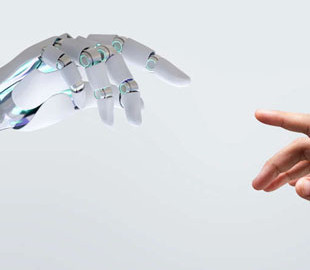
Artificial intelligence (AI) continues to penetrate all areas of our lives, and now it not only promises to change our world, but also actively decides which professions will be under threat in the next few years. The editorial staff of our publication decided to conduct an unusual experiment: we turned to artificial intelligence (AI) to find out which specialties may disappear or significantly transform under the influence of new technologies by 2027.
Which professions are under threat
“We are watching technology develop rapidly, and we can already say that some professions may soon become less in demand or be completely replaced. First of all, this applies to jobs that are based on routine tasks or clearly defined instructions,” – artificial intelligence begins our conversation.
1. Drivers: autonomous vehicles
AI has repeatedly stated that autonomous cars – this is not the future, but the present. Self-driving car technologies continue to improve, and in the coming years, truck, taxi and bus drivers may be replaced by unmanned vehicles.
“Our ability to recognize the environment and make instant decisions reduces the need for human control of the steering wheel. This will lead to major changes in the transportation industry, in particular, in the labor market for drivers,” — explains AI.
2. Accountants and financial analysts
Artificial intelligence is actively developing in the field of finance, and today many accounting tasks can already be automated. Forecasting financial results, data processing, tax calculations and other reporting documents, which previously required human participation, are now successfully performed by computer programs.
“I am able to quickly process huge amounts of data, analyze and predict financial trends, which makes the work of an accountant much more efficient, and sometimes completely unnecessary,” — comments AI.
3. Doctors: artificial intelligence in medicine
Medical diagnoses and treatment — this is an area where artificial intelligence is also gaining enormous potential. There are already programs that can diagnose diseases based on the results of analyzes and images, and in the future even perform complex operations with the help of robotic systems.
“We understand that our algorithms can significantly improve the accuracy of diagnoses and speed up treatment processes. But this does not mean that doctors will completely disappear. Most likely, they will be able to work together with us to ensure the best results for patients”, — says AI.
4. Consultant sellers: automation of purchases
Artificial intelligence is already being used in chatbots to interact with customers in online stores. However, in the future, this technology could spread significantly to physical stores. Robots that can interact with customers, provide recommendations and make sales could become the new standard.
“We can not only automate online sales, but also develop robot consultants that can work in stores, providing continuous customer service, as well as analyze purchases for personalized recommendations,” — explains artificial intelligence.
5. Journalists and content managers
Artificial intelligence already creates news and publications based on big data analysis, and the quality of such materials is getting higher every year. Models like GPT can quickly generate text, adapting it to the needs of users.
“I can create content that is accurate, relevant and personalized. I am already replacing journalists in creating simple news or analytics. However, creative professions that require deep human emotions and intuition remain for humans,” — AI notes.
What humans can do to stay afloat
Artificial intelligence does not deny that certain professions will disappear, but it also emphasizes that it will give people the opportunity to focus on creative and innovative tasks.
“You need to adapt to new conditions, master new skills and develop your abilities in areas where humans cannot be replaced — creativity, emotional intelligence and strategic thinking,” — AI summarizes.

